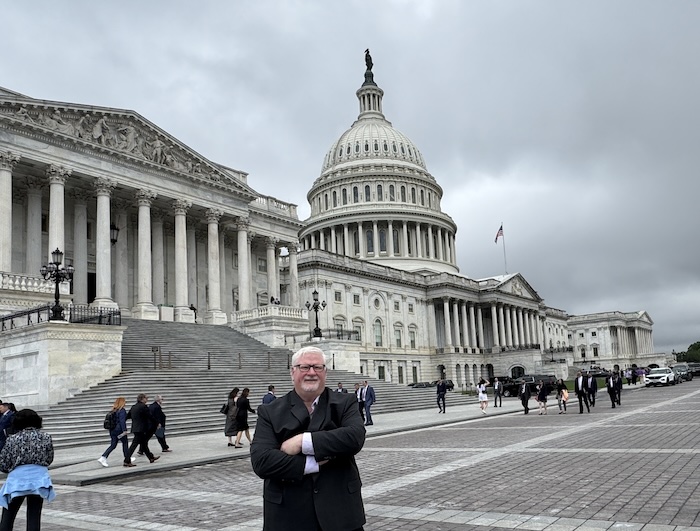[ad_1]
How do we get there? It’s in the relationship building, which involves ‘wash, rinse and repeat.’ That’s lobbying in D.C. in a nutshell.
Recently, I did some advocacy work and lobbied on Capitol Hill in Washington, D.C. on behalf of the Plumbing Industry Leadership Coalition (PILC). Some of the attendees met with the offices of five or six congressmen and women and we shared our concerns about WaterSense, tariffs, NIST funding, etc. Meeting with low level administrative assistants or staffers—who were taking copious notes from multiple daily meetings—and depending on which political leanings the office had, I asked myself, “was my voice even heard”?

The Reality of Lobbying
Don’t get me wrong, it was a great experience and the optics looked great, but how does someone like me effectively convey messages that are heard and ensure actions are put into place?
“A dynamic every lobbyist faces,” says Mark Valentini, Vice President of Legislative Affairs, PHCC. “You could have the best argument and it can fall on deaf ears. Not because staff are jaded, or because they don’t care or it’s not important, but because they are inundated with messaging every day on a variety of topics,” continues Valentini.
Valentini adds that repetition and addition is key and says that you need to go back repeatedly to carry your message, add additional new information as it becomes available, and make the connection as to why it’s important to the constituents that voted for the legislator. “Wash, rinse and repeat with every other legislative office again and again. Build those relationships, get them to like you and like your message. Then you become more effective,” says Valentini.
Adequate Preparation
Mike Prencavage Jr., owner of The Family Plumber, Los Alamitos, Calif., who was part of PHCC’s lobbying efforts on the Hill a few weeks ago, says that while understanding that many congressmen and women are extremely busy with the day to day in D.C., it’s imperative to be well prepared before engaging with your representatives. “Always do your homework on the representatives such as personal interest or charitable contributions they may have made recently,” says Prencavage Jr. By complimenting the passions of that individual, you can really capture the attention from the start of each meeting.”

Prencavage Jr adds that PHCC made a point to be well prepared with an informational packet that spelled out the top 3-5 points including reference for legislation that affect the plumbing/HVAC trades the most. Finally, according to Prencavage Jr., it was a great idea from current PHCC president to present “PHCC Engraved Challenge Coins” for its members to give to the representatives making a great overall first impression. “I felt by following this engaging process during our advocacy meetings, we were successfully able to have our voices heard. It was an amazing experience overall and I recommend it to anyone who has a passion for making a change to get involved at this level,” says Prencavage Jr.
In the end, Valentini says to think about the relationships you’ve built over the course of your career. They didn’t form overnight, but at some point, you’ve built connections for whom you’ll go to bat, give a helping hand, support where you can, and there’s reciprocity.
“You emailed me and asked for something, and I hope my response is the thing that you need. If not, I’ll work with you to make sure you get what you’re looking for,” says Valentini. “You asked, we have a working relationship, and frankly you’re an alright guy which makes me more likely to respond. That’s lobbying.”
Aw Shucks.
For more on PHCC Policy & Advocacy,
Subscribe to the Mechanical Hub newsletter,
[ad_2]
Source link
